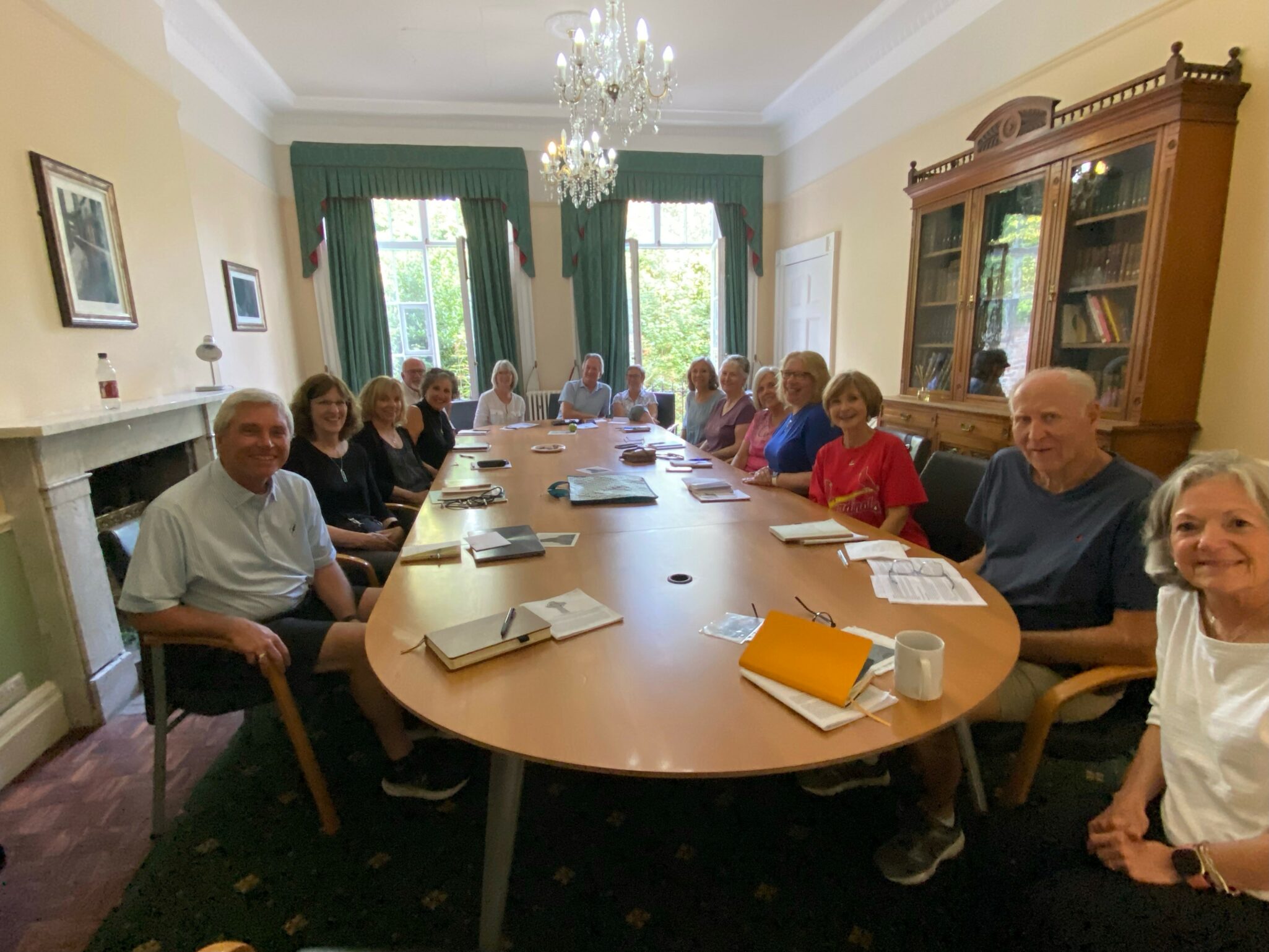9-14-22 Life in Community
I recently returned from Reno, Nevada, where I visited my mother and brother and his family. I used to visit my mother in my hometown of Carlin with a population of 1,300 people. This is fewer people than our church membership or all the students at Madison High School. Growing up in Carlin, I was part of an extended family of uncles, aunts, and cousins. Many have died and the rest have moved away.
While in Reno, I enjoyed a ladies’ lunch with my mother and two aunts (ages 91 to 100), several cousins, and my sister-in-law. It was good to be with my tribe. I lament the fact that my own children have never had the experience of living near extended family or being a part of the small-town community I enjoyed.
Thirty years ago Stuart and I moved to Chicago so that I could go to seminary. We joined the First Presbyterian Church of Evanston. I remember well the lunch for us and the other new members where I sat next to Jim, an elder who also grew up in a small town. He shared that he considered that church (about 700 members) as his small town in the city. By that time in my life, I had lived in metropolitan areas for almost a decade, so it really resonated with me. The church was the place where I had found and enjoyed life in community.
On my recent Celtic Pilgrimage to England, I enjoyed a time in community with 15 brothers and sisters in Christ. Though I knew only two of the individuals before the trip, our group quickly bonded because we shared faith in God, a desire to grow spiritually, and an interest in learning more about Celtic Christianity. Not only did we visit Celtic sights, we also enjoyed time together as we listened to lectures, discussed how to apply our learning to our real lives, and shared many meals and our lives around the tables.
These experiences helped us to know and be known and love and be loved. Though most of these people were total strangers when we first met, I felt so much love in this group. I confess I was surprised this happened so quickly, though I shouldn’t have been. It is the mystery of our faith and what happens in genuine, honest, authentic community.
As I listened to lectures and read books about the ancient Celtic Christian Church, I thought we can learn a lot from their commitment to life in community. In his book Restoring the Woven Cord, Michael Mitton identifies three influences that had a bearing on this. The first was the influence of their pre-Christian society. They were tribal people who lived in small communities with people to whom they were often related. They cared for individuals, including the most vulnerable. And they were very egalitarian. For example, women were more respected and could even rule as chieftains, which was a contrast to the realities of living in the Roman Empire.
The second influence was that of the Desert Fathers and Mothers who had left the city as a response to the compromises that they felt were negatively affecting larger parts of the church throughout the Roman Empire. They chose instead to live in monastic communities where they could live out the principles of simplicity, prayer, fasting, spiritual warfare, wisdom, and evangelism.
The third influence was the Celtic church’s love for the Trinity. The prominence given to the Trinity conveys to us something of how these men and women felt about themselves and their world. As Esther de Waal explains in Celtic Vision, “A God who is Trinity in unity challenges self-centered isolation and points instead to fellowship.”
Celtic Christianity flourished in a time when there was a great deal of tribal conflict. “Pre-Christian Celts were certainly bold warriors and enjoyed conquering land, but the Christianized Celts preferred to do their warfare in the ‘heavenlies’ and to work for peace between nations and tribal groups.” Monasteries were the center of Celtic life and provided a holy, hospitable community that was truly inviting to those living in a harsh and hostile world. This way of life has a lot to say to us in our day.
Michael Mitton writes, “In this 21st century, where we see evidence of so much polarization, not only in our world but in the church as well, more than anything else we need a church to model a Spirit-inspired community, where people demonstrate a commitment to overcoming the differences that have too easily divided us…. We see so much individualization and fragmentation of community around us, and therefore the need is great for churches not only to demonstrate genuine community life but also to contribute to the development of community life where we live and witness.”
It is in community where we learn what it means to trust and follow our Lord Jesus, and it is the community empowered by the Spirit that reveals the love of God to the world. God wants to use us, his collective people, to transform our society. You recall that is what happened in the early church. In Acts 2:42-47, we read what the life in community looked like after the Spirit descended on them on the Day of Pentecost:
They devoted themselves to the apostles’ teaching and fellowship, to the breaking of bread and the prayers. Awe came upon everyone because many wonders and signs were being done through the apostles. All who believed were together and had all things in common; they would sell their possessions and goods and distribute the proceeds to all, as any had need. Day by day, as they spent much time together in the temple, they broke bread at home and ate their food with glad and generous hearts, praising God and having the goodwill of all the people. And day by day the Lord added to their number those who were being saved.
Since the Enlightenment, we have been indoctrinated to believe we are to live only as an individual. But as John Donne wrote, “No Man is an Island.” There are no Lone Ranger Christians. As this passage makes clear, we are part of the body of Christ. Life in community is not an option but a way of life. It is only in deep, authentic, honest relationships with God and with others that we can grow, change, learn to love God and neighbors, and help to transform the world. It takes time to cultivate spiritual friendships, and we won’t have them with everyone. In such a large church, it is so important that we be intentional in finding community that will help us experience deep connection.
As a pastor, I have led and taught many groups and learning communities. None of them was perfect, but in every one, I have had the opportunity to receive and give love, grace, mercy, and truth. Each of us has to take the time to find the group or community that is right for us. Trust me, it’s worth the effort. I love the wisdom of Dietrich Bonhoeffer who wrote in Life Together: “The person who loves their dream of community will destroy community, but the person who loves those around them will create community.”
Fall is a wonderful time for new beginnings, to renew our commitments, and to be a part of creating community. We all need intentional practices, relationships, and experiences to grow in the grace and knowledge of our Lord Jesus. And I urge you to consider what that means for you in the midst of your real, everyday, ordinary life. Make time for life in community by exploring the available opportunities on our website. There’s a group for you. Find the ways you can serve and be a part of what God is continuing to do in and through his people at VPC.


